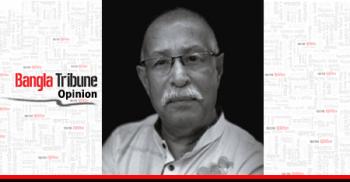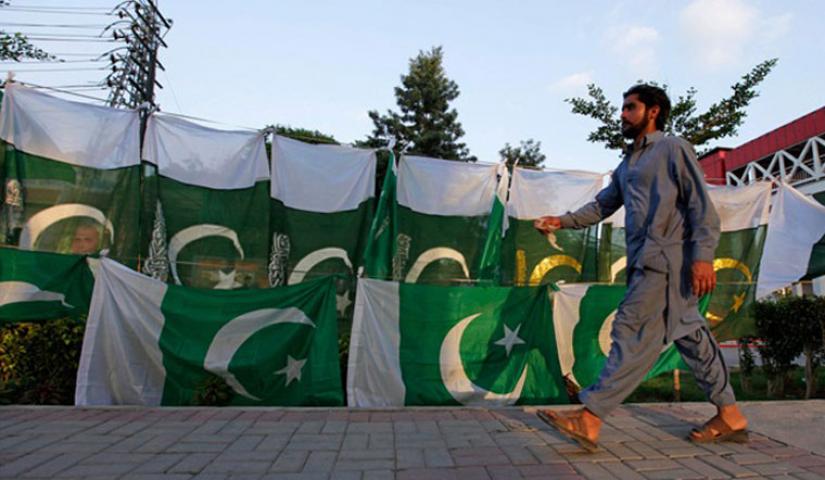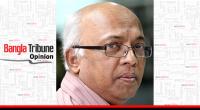 Many argue that ‘Al-Bakistan’ is a derogatory or satirical term for Islamic Republic of Pakistan.
Many argue that ‘Al-Bakistan’ is a derogatory or satirical term for Islamic Republic of Pakistan.
The ‘Islam-Pasand’ (Islamist) elements in Islamic Republics conspicuously remain silent when Pakistan is dubbed as Al-Bakistan, specially when thousands of vehicles and motorbikes in the streets of Karachi, Lahore, Rawalpindi and elsewhere are sporting ‘Al-Bakistan’ on their registration number plates.
Aftab Usmani, a Pakistan national thoughtfully argues that: This is because lots of people (especially Islamist) of Pakistan consider themselves of Arab ancestry and take pride in it much more than their South Asian ancestry.
There is very simple explanation to the issue of ‘Al-Bakistan’. Usmani further explains: The funny part is that Arabic language does not have any letter for sound 'P'.
In Arabic language, the Holy Quran has been revealed, unfortunately ‘Pakistan’ can only be pronounced as ‘Bakistan’.
In Arabic, the closest equivalent letter to 'P' would be 'B'. 'Al' is a definite article in Arabic. Closest equivalence in English would be 'The'. So this name 'Al-Bakistan' (The Pakistan) is satirical take on those who consider themselves of Arab ancestry.
Similarly, Bangladesh, in Arabic will be called ‘Al-Bangladesh’ while India for centuries is known as Al-Hind in Arab countries.
On the other hand, secularists, intellectuals, civil societies and mainstream media in Pakistan have worked out a conspiracy theory derived from a social construction of the Arabisation of Pakistan.
Aneel Asghar, a Pakistani living in Islamabad, capital of Pakistan posted an argument online: Pakistani society was also tilted towards puritanical Islam. As the trend of Islamisation and Arabisation soared, some people wanted to trace their ancestral roots back to the Arabs. These people feel proud of their Arab links and write mostly on their vehicles the Arabic form of name of Pakistan. Pakistan was born out of an emotional idea into two-nation theory. This idea was that of a Muslim exclusiveness and a pan-Islamism identity, which articulated itself as a claim of being not only a separate nation from the Hindus of India, but also being an equal nation. The partition gave them a separate nation, but the quest for equality continues till date.
Pakistan was born out of an emotional idea into two-nation theory. This idea was that of a Muslim exclusiveness and a pan-Islamism identity, which articulated itself as a claim of being not only a separate nation from the Hindus of India, but also being an equal nation. The partition gave them a separate nation, but the quest for equality continues till date.
The quest for a separate and equal nation was a political goal of Mohammad Ali Jinnah and his support base of Muslim Nawabs and landlords, who feared losing their power, influence, and property in an egalitarian India.
Sanjay Dixit, a political historian writes: The Congress governments formed after the 1936 elections gave enough evidence of the anti-feudal direction they intended to take once they had got independence. It was easy for Jinnah to drum up support from the Islamic theologians, as Islam is essentially a religion that combines religious and political power — as in a Caliphate.
Nirvaan Nadeem, a theater activist in Pakistan in an article "Welcome to Al-Bakistan" in the Daily Times writes: From Ramazan to ‘Ramadan’, Pakistan to ‘Al-Bakistan’, ‘Khuda Hafiz’ to ‘Allah Hafiz’ ‘Namaj’ to ‘Salat’, has been a painful journey for us over the past three decades. These cosmetic changes actually represent a more significant societal change, a move for the ‘Arabinisation’ of our land of the pure.
Pakistan, once, had been a pretty much open society. Women rode bicycles, people were not beaten up for not fasting, women were not harassed for not covering their heads, and were at least legally equal to men before the law, laments Nirvaan Nadeem.
Muslim League leader M.A. Jinnah did not even like the name ‘Pakistan’ in the beginning when it came to his attention. The Cambridge-based student, Chaudhary Rahmat Ali had coined Pakistan, writes Dr Tariq Rahman, in the Express Tribune published from Karachi.
‘Al-Bakistan’ phenomenon is state-sponsored and he understands that there lies the danger of it.
He fears yielding to the Arabised, extremist worldview, will usher in more intolerance and increased possibility of cultural authoritarianism.
Saleem Samad, is a journalist, recipient of Ashoka Fellow (USA) and Hellman-Hammett Award, also Bangladesh correspondent of Paris based international media rights organization, Reporters Without Borders (RSF). Twitter @saleemsamad; Email: [email protected]
 Opinion
Opinion
41419 hour(s) 46 minute(s) ago ;
Afternoon 02:40 ; Tuesday ; Jul 08, 2025
Why Pakistan should be Al-Bakistan?
Send
Saleem Samad
Published : 19:48, Jul 08, 2019 | Updated : 20:11, Jul 08, 2019
Published : 19:48, Jul 08, 2019 | Updated : 20:11, Jul 08, 2019
0 ...0 ...
/aib/hb/
Topics: Top Stories
***The opinions, beliefs and viewpoints expressed in this article are those of the author and do not reflect the opinions and views of Bangla Tribune.
- KOICA donates medical supplies to BSMMU
- 5 more flights to take back British nationals to London
- Covid19: Rajarbagh, Mohammadpur worst affected
- Momen joins UN solidarity song over COVID-19 combat
- Covid-19: OIC to hold special meeting
- WFP begins food distribution in Cox’s Bazar
- WFP begins food distribution in Cox’s Bazar
- 290 return home to Australia
- Third charter flight for US citizens to return home
- Dhaka proposes to postpone D8 Summit
Unauthorized use of news, image, information, etc published by Bangla Tribune is punishable by copyright law. Appropriate legal steps will be taken by the management against any person or body that infringes those laws.
Bangla Tribune is one of the most revered online newspapers in Bangladesh, due to its reputation of neutral coverage and incisive analysis.
F R Tower, 8/C Panthapath, Shukrabad, Dhaka-1207 | Phone: 58151324; 58151326, Fax: 58151329 | Mob: 01730794527, 01730794528


